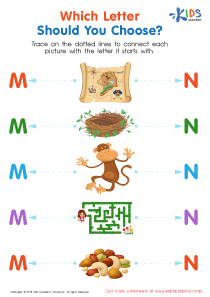Alphabet Recognition Normal Lowercase/Small Letters Worksheets for Ages 6-7
9 filtered results
-
From - To
Unlock your child's potential with our Alphabet Recognition Normal Lowercase Letters Worksheets designed for ages 6-7. These engaging resources focus on mastering small letters, enhancing phonetic understanding and reading readiness. Perfect for building foundational skills, each worksheet fosters letter recognition through fun activities like tracing, matching, and writing exercises. Created by educational experts, these printable worksheets are ideal for both classroom environments and home learning. Boost your child's literacy journey with effective, enjoyable practice that transforms learning into play. Visit Kids Academy and discover the path to academic excellence and a lifelong love of reading.
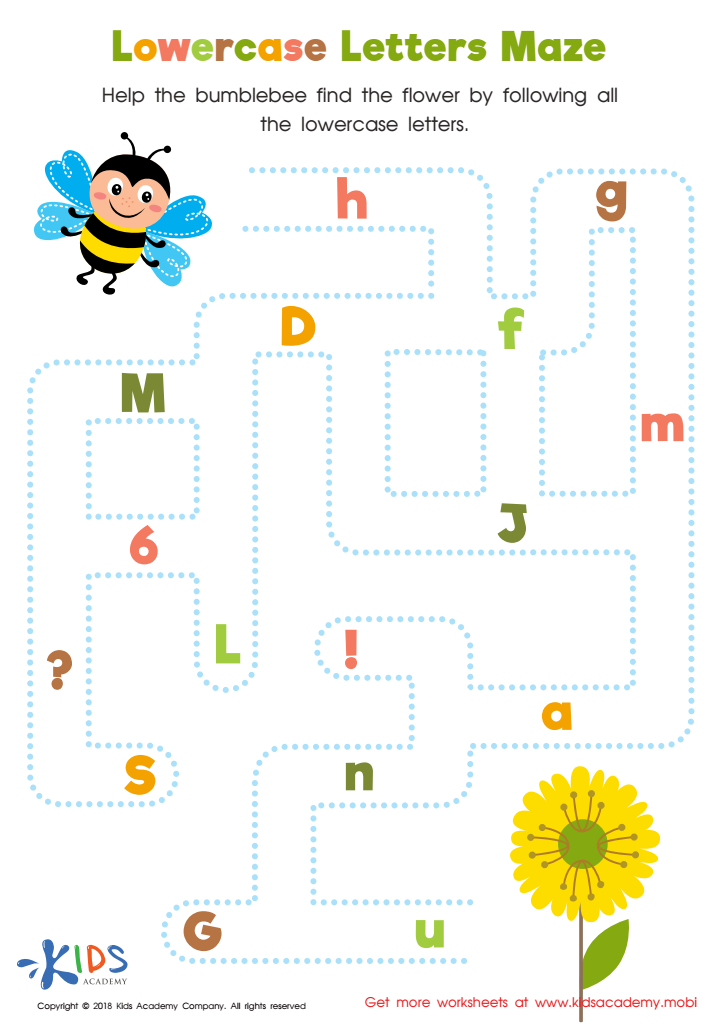

Lowercase Letters Maze Worksheet
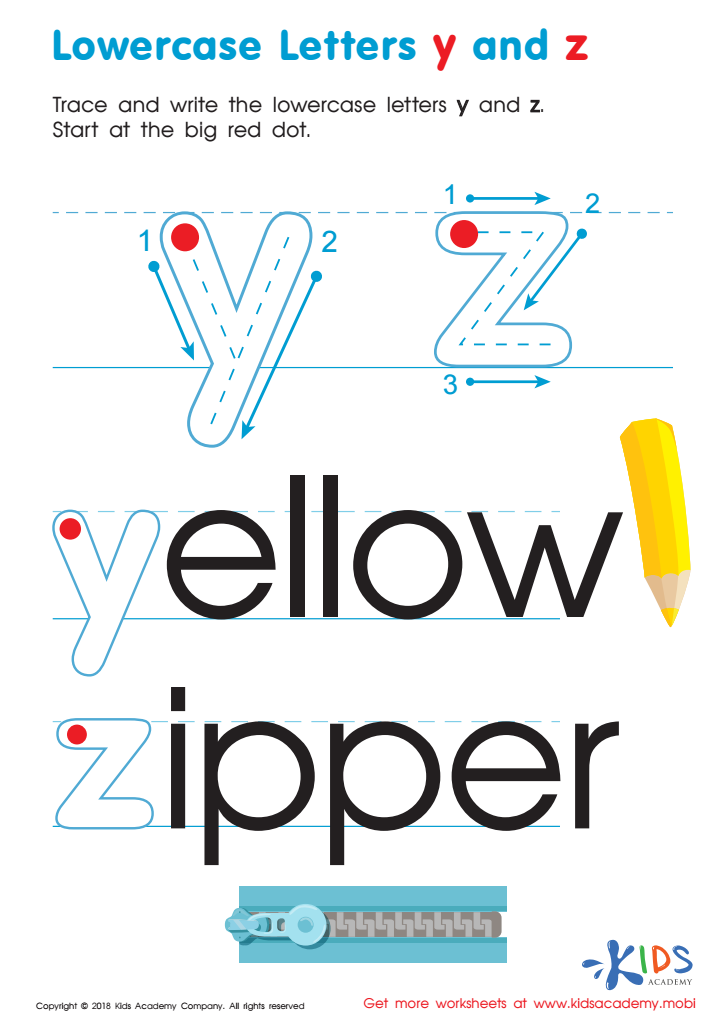

Lowercase Letters y z Worksheet
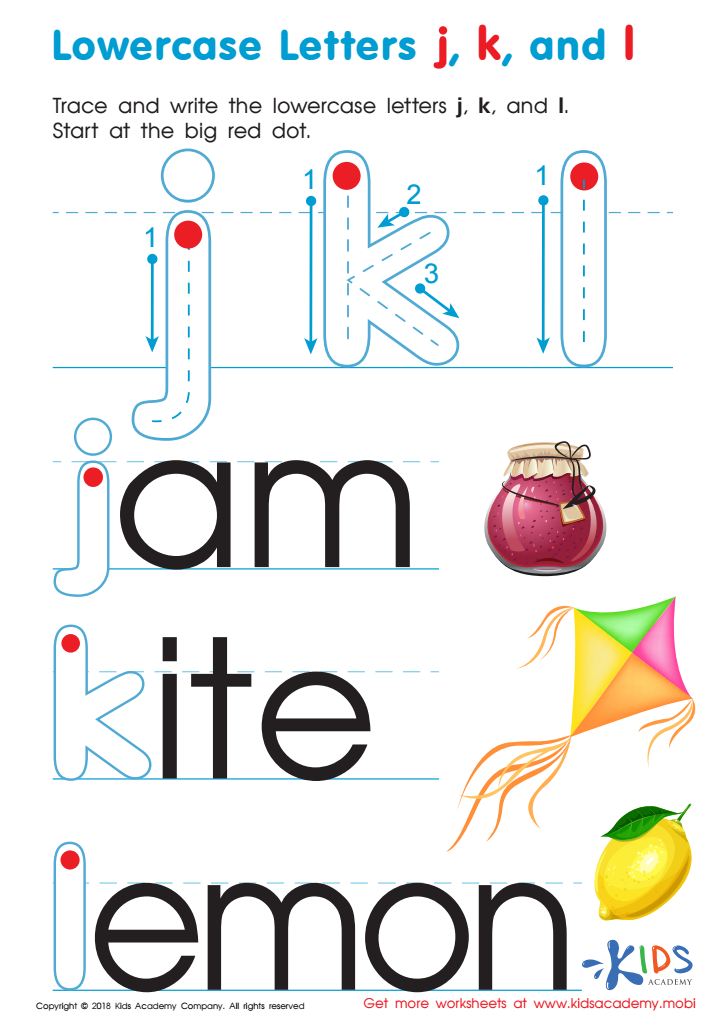

Lowercase Letters j k l Worksheet
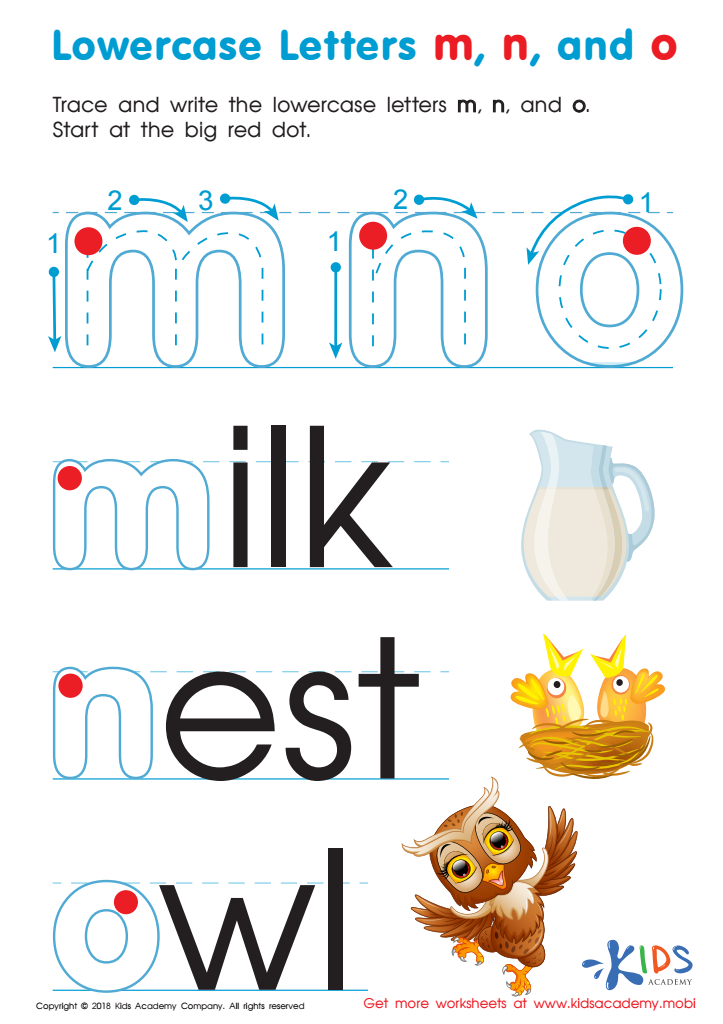

Lowercase Letters m n o Worksheet
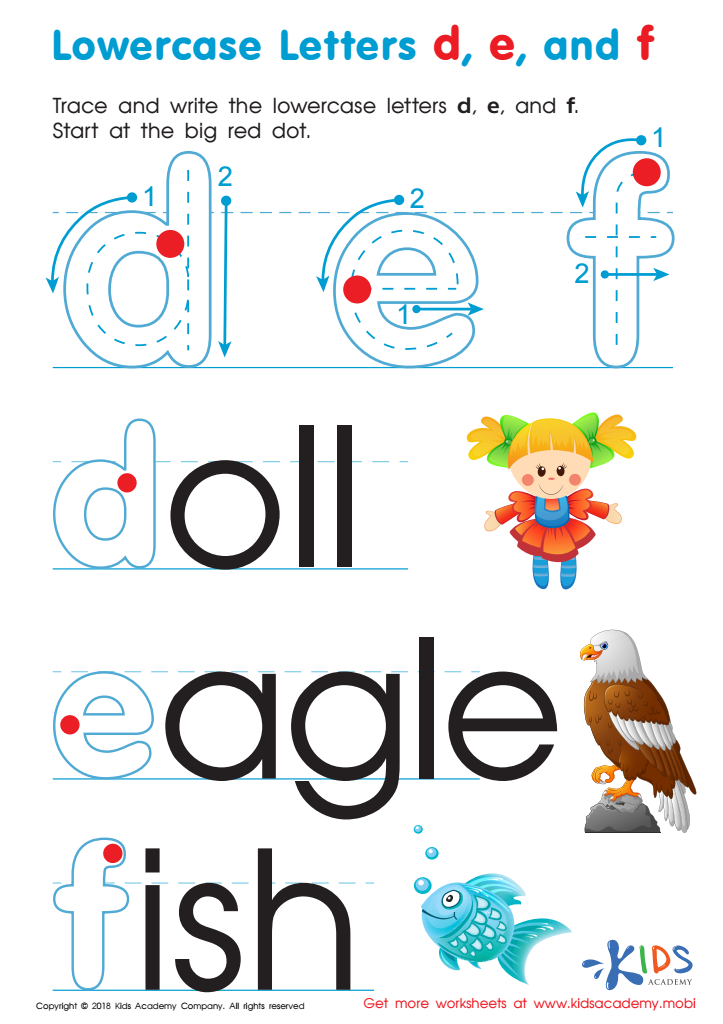

Lowercase Letters d e f Worksheet
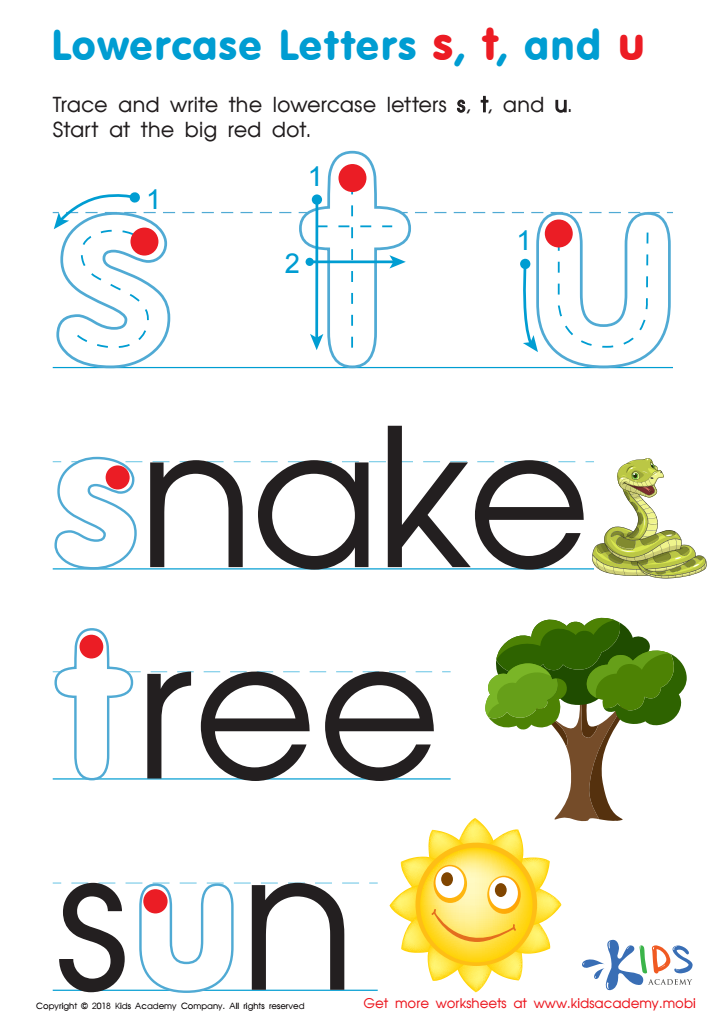

Lowercase Letters s t u Worksheet
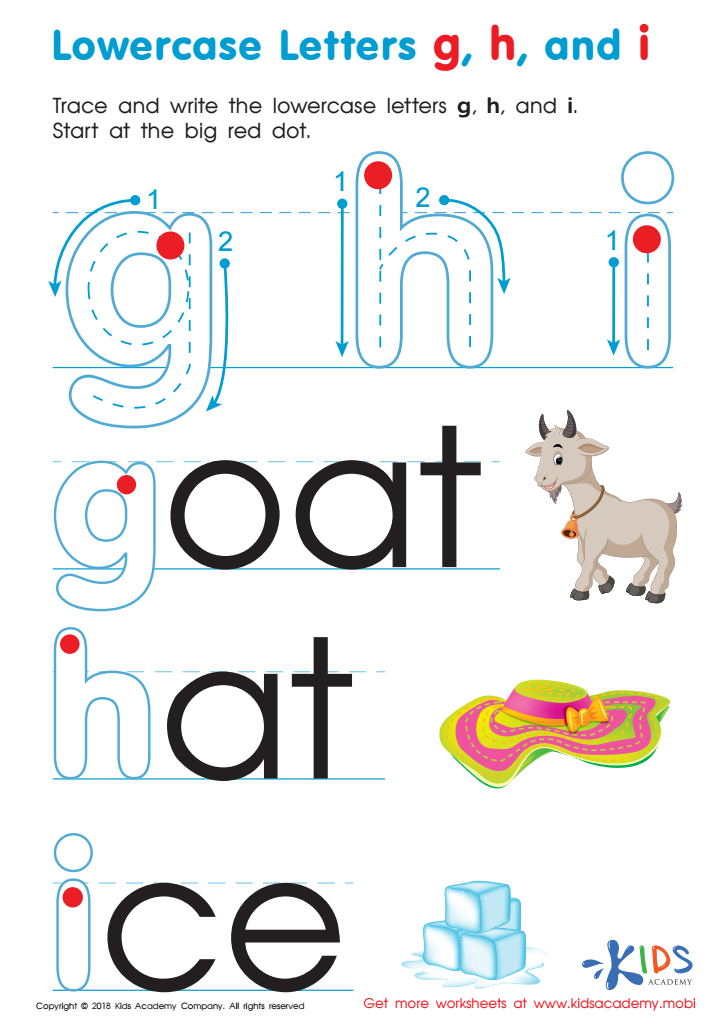

Lowercase Letters g h i Worksheet
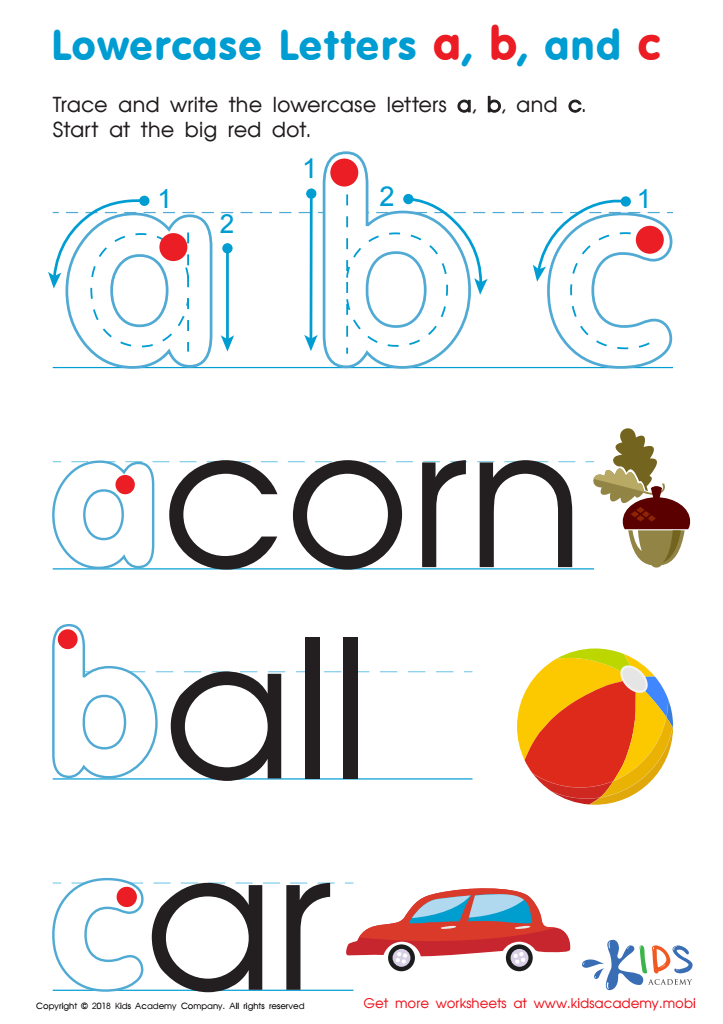

Lowercase Letters a b c Worksheet
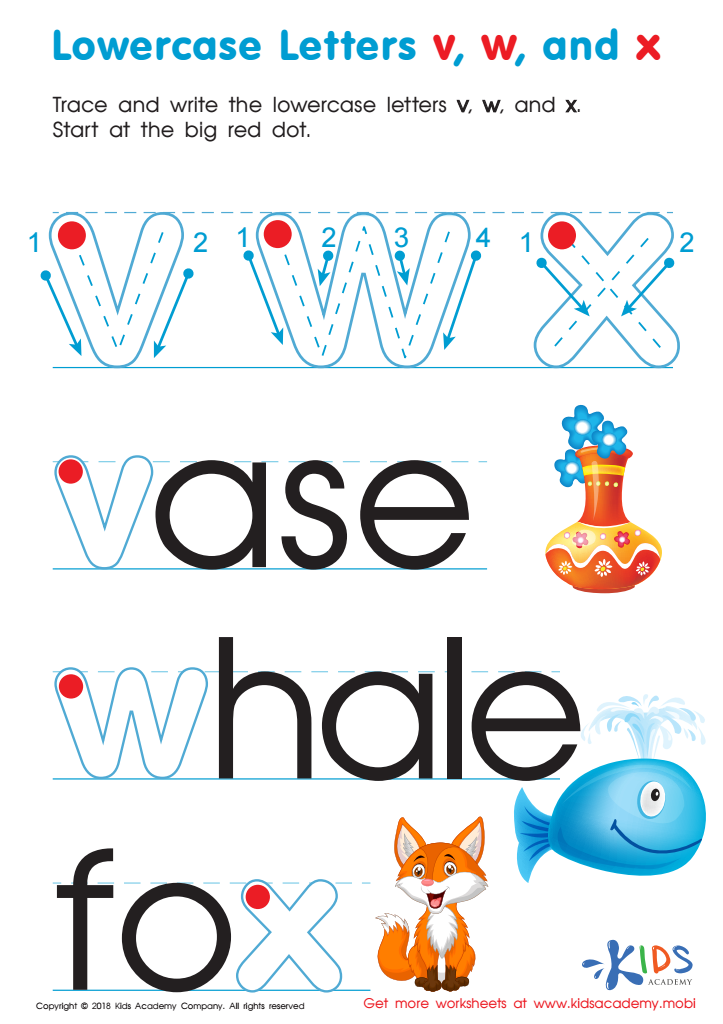

Lowercase Letters v w x Worksheet
Parents and teachers should care about alphabet recognition, particularly normal lowercase or small letters, for children aged 6-7 because this foundational skill is vital for literacy development and overall academic success. At this age, children are transitioning from recognizing individual letter sounds and shapes to reading and writing words and simple sentences fluently. Mastery of lowercase letters is essential as these are the most frequently used in texts.
Understanding lowercase letters enables children to read more fluidly and with better comprehension since not all literature for early readers is in uppercase. This familiarity supports their ability to decode words quickly, which builds their confidence and enjoyment in reading. Additionally, writing activities, such as journaling or story creation typically use lowercase letters. Proficiently recognizing and writing these letters allows children to express themselves more easily and engage in creative writing tasks, enhancing their communication skills.
If children struggle with lowercase alphabet recognition, it can hinder their progress, causing frustration and a lack of interest in learning-related tasks. By focusing on developing strong lowercase letter recognition, parents and teachers set the stage for more complex literacy skills and ensure children have a smoother, more enjoyable educational experience.
 Assign to My Students
Assign to My Students





